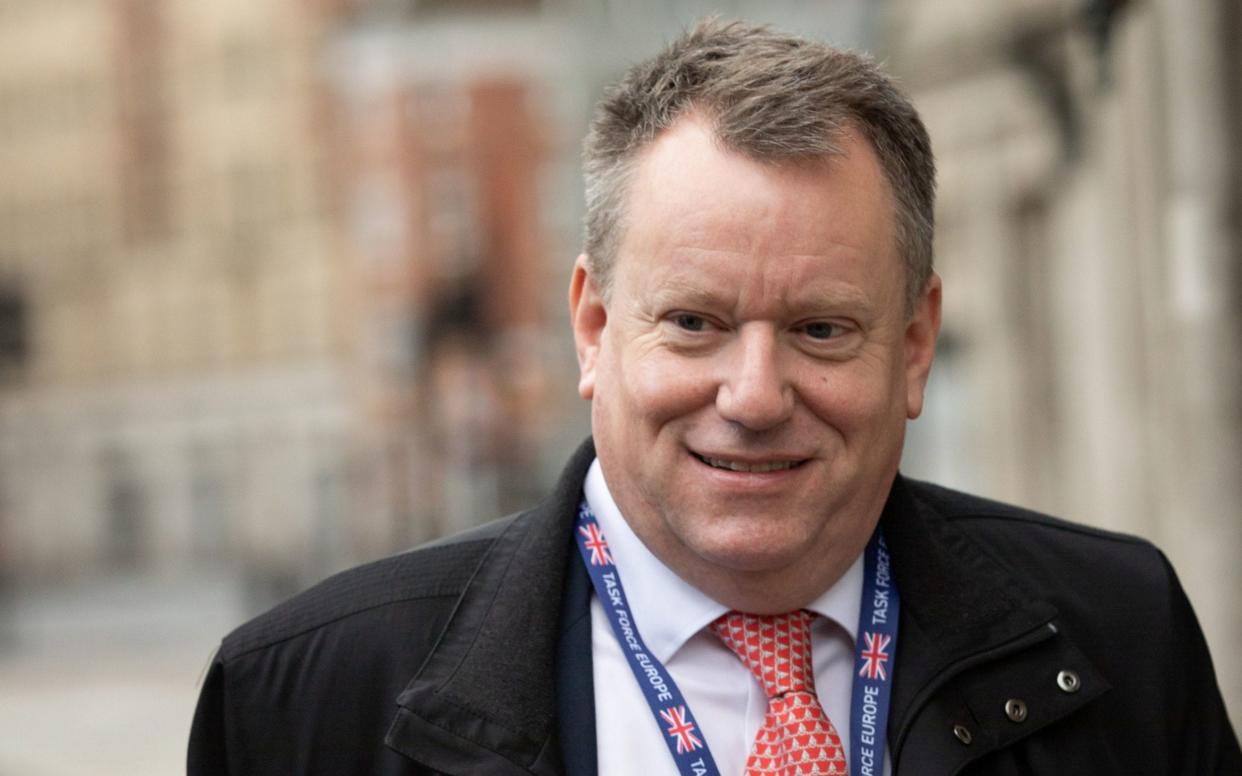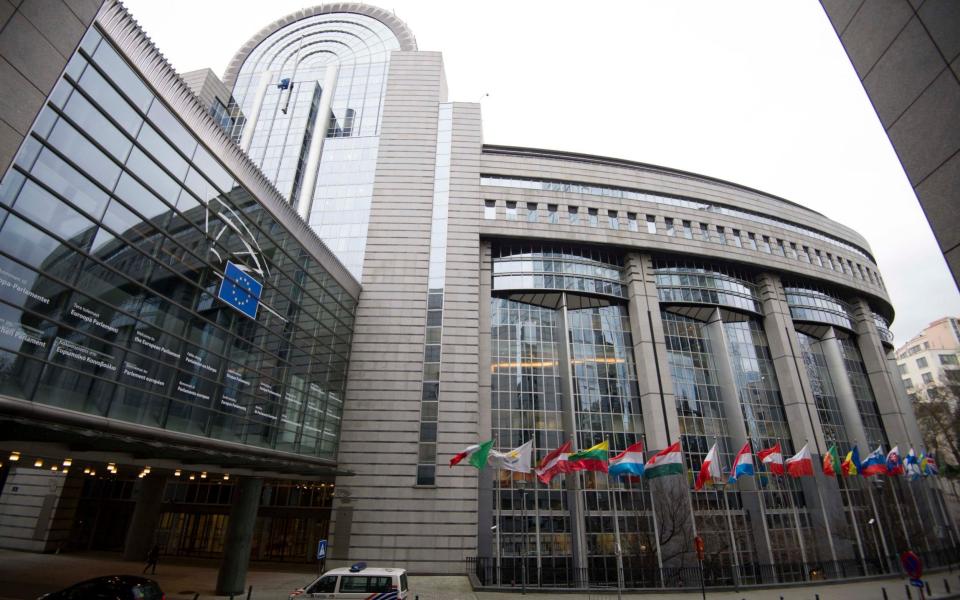EU states believe MEPs have handed UK leverage in Brexit talks over Northern Ireland

Britain’s hand in negotiations over the Northern Ireland Protocol has been strengthened by the European Parliament’s refusal to set a date to ratify the Brexit trade deal, EU governments have warned.
Lord Frost is in Brussels for talks over the implementation of new customs arrangements in Northern Ireland with his European Commission opposite number Maros Sefcovic.
Brussels has begun legal action against the UK, which it accuses of breaking international law by unilaterally extending grace periods on some customs checks in the Withdrawal Agreement. Britain argues the measures are lawful and in good faith.
MEPs refused to name the date for the plenary vote on the trade deal for a second time on Tuesday in a bid to heap pressure on Britain over the agreement that introduced a customs border in the Irish Sea to prevent a hard border on the island of Ireland.
The threat infuriated European capitals, which are worried it could backfire and believe it weakens the EU’s negotiating position in the talks over Northern Ireland.
“There is serious incredulity around the table,” an EU diplomat said, “The irresponsible actions by the UK government have been bemoaned by MEPs for months only for them to act exactly the same way.”
“It will impact the EU’s negotiations over Northern Ireland and call into question certainty for citizens and companies on both sides of the Channel.“
The UK-EU trade deal, which is separate from the Withdrawal Agreement, was provisionally applied at the end of last year.
If the European Parliament does not ratify the deal by the end of April the EU would have to ask the UK for an extension or face a damaging no deal because the provisional deal would fall away.

EU member states, who believe that MEPs will ultimately cave and pass the deal in a plenary vote, and the UK have already given their assent to the deal.
The European Parliament's Committees on International Trade and Foreign Affairs voted in favour of ratifying the trade deal today in the last step before the full parliament vote. 108 MEPs voted in favour, four abstained and one, Kostas Papadakis, a member of the Greek Communist Party, voted against.
Bernd Lange, the chair of the trade committee, said no date for the full parliament vote would be set until Britain gave "clear commitments" to fully implement the Protocol.
“At the moment there is a lot of discussion about mistrust towards the British Government, specifically regarding the unwillingness to implement the necessary steps in the Northern Ireland Protocol,” he said.
MEPs from the influential European People’s Party (EPP) said ratifying the trade deal would mean the EU could use dispute mechanisms in the agreement to pressure the UK to properly implement the Protocol.
“A fully ratified agreement will increase the leverage and expand our legal toolbox to continue pressing for the full and pragmatic implementation of both the Withdrawal Agreement and its Protocol", said Christophe Hansen MEP, the EPP trade spokesman said.
Sean Kelly, the head of the EPP’s Irish delegation, said that “the violence of recent weeks in Northern Ireland was totally unacceptable.”
“It is time for the UK to show responsibility and work hand in hand with the EU to calm tensions,” he said.
Both sides played down the chances of any breakthrough in the impasse ahead of the dinner between Lord Frost and Mr Sefcovic in Brussels.
The Telegraph understands that some progress has been made in technical talks over recent days, even if significant differences between the two sides remain.
The EU and Britain have identified 27 different issues in relation to Northern Ireland's contested post-Brexit trade arrangements, some of which are more difficult than others and require political solutions, Ireland's foreign minister Simon Coveney said on a visit to London.
Mr Sefcovic has suggested that aligning EU and UK animal health rules could remove the need for many checks but Britain has rejected that. It wants its rules to be deemed equivalent, of a similar standard, to Brussels' rather than exactly the same and changing to match them over time.
The commission has granted a British request for more time to respond to the EU legal action over the Northern Ireland Protocol.
A European Commission spokesman said the aim of the meeting was to take stock of the technical work over the past couple of weeks and to give a “political steer” for follow-up talks. Mr Sefcovic would discuss the legal action for violating the terms of the Protocol, he said.
“This evening's meeting is part of our intense efforts to find joint solutions to the implementation of the Protocol,” the spokesman said.

 Yahoo News
Yahoo News 
